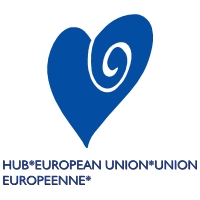
***The International Council of Chemical Associations (Cefic is a member) was hosted by Italian authorities published yesterday a report, Innovations for Greenhouse gas emission reductions. This report helps industry, stakeholders and policymakers understand the role that chemical products play as enablers of climate solutions through the supply chain
The report found that for every unit of greenhouse gases emitted directly and indirectly by the chemical industry, this industry enabled 2-3 units of emission savings via the products and technologies provided to other industries and consumers. In other words, products of the chemical industry enabled greenhouse gas savings 2-3 times greater than their emissions.
The most significant emissions savings by volume came from insulating foams in buildings, agrochemicals, lighting, plastic packaging, marine antifouling coatings, synthetic textiles, automotive plastics, low-temperature detergents, engine efficiency, and plastics used in piping. Under 2030 scenarios, the report found that the ratio of emissions savings.
The life cycle analysis is usually based on the assumption that if the particular chemical for a product didn't exist, then the demand for that product would still be the same and would have to be filled by an inferior product. (e.g. steel instead of plastic for cars). Indeed, you can then calculate the CO2 savings enabled by the chemical.
The study intentionally did not try to evaluate or judge societal issues regarding current or future consumer choices. Based on all the evidence of the past decades however we just made the pragmatic assumption that societal choices driven by a growing and more affluent population would continue to increase the demand for comfortable houses, effective transport, safe medicines etc.
Our role is to make the products that respond to those consumer demands –ideally in an increasingly CO2e efficient manner so that the use of those products can also be made more carbon efficient. This study provides the facts and figures to help us identifying the potentials. Less efficient cars eat up more resources and reduce other spending options of the consumer - unless the consumer would decide to change the life style completely by switching from individual mobility to e.g. public transport.
The most valuable result of the study is that for the first time, a global chemical industry study with real data has been provided. This enables us to develop clearer ideas and discuss with policy makers what the industry can contribute in terms of emission reductions i.e. throughout the life cycle of our products. Our new, integrated and systematic approach goes beyond the usual one-dimensional thinking restricting the view on own manufacturing emissions and how to reduce these. This gives us a profound basis for policy recommendations towards innovation and better regulation.
***Changement climatique : l’urgence, moteur d’une crise prématurée ?
http://www.communication-sensible.com/download/changement-climatique-urgence.pdf?PHPSESSID=396620e5e1d74fc045bd7831e9afddba
Philippe de Casabianca
Energy, HSE & Logistics Programme
Cefic – European Chemical Industry Council
www.cefic.be















Aucun commentaire:
Enregistrer un commentaire